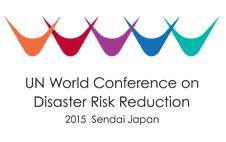
Focus on better water management and ecosystem restoration urgent at UN summit on Disasters
-
Climate and disaster risks
-
Coastal resilience
-
Community resilience
-
Integrated delta management
Sendai, Japan – Tackling disasters such as floods and droughts should focus much more on the sustainable use and restoration of ecosystems such as wetlands, states NGO Wetlands International in the run-up to the UN World Conference on Disaster Risk Reduction where governments will conclude a new treaty for the next 20 to 30 years from 14-18 March in Sendai, Japan.

According to the latest report of the IPCC, there is a need for more focus on reviving natural systems which grow and adapt to the changing climate, while man-made infrastructure does not.
Jane Madgwick, CEO of Wetlands International: “Climate change will aggravate the risk of water shortages and floods, but many disasters, including increasing impacts of floods and droughts, are caused primarily by poor water management and the loss of wetlands and forests in the landscape. Disasters will continue to frustrate development unless greater measures are taken to restore ecosystems and manage water resources more wisely.”
The world has lost more than 75% of its wetlands since 1900 through drainage and conversion. Wetlands International has therefore been actively promoting an emphasis on better management and restoration of wetland ecosystems in the new UN agreement on Disaster Risk Reduction.
Marie-Jose Vervest, Programme Head Community Resilience Wetlands International: “It is vital that the new Disaster Framework encourages governments to map the risks in entire river basins and shorelines, and on that basis decide what package of measures can be taken to improve land and water management.”
The latest version of the negotiating text focuses more than ever before on disaster prevention, rather than just on managing emergency aid. Also, the importance of ecosystems, better land use and water management is highlighted in several sections. “But there is still a lot of text in brackets and the negotiations will conclude only in Japan,” said Marie-Jose Vervest.
Wetland ecosystems such as lakes, wetlands, marshes and swamps act as buffers for floods and droughts. In periods of drought they supply water while in times of floods they store excessive water. This is important not only for safety, but also for the supply of food, drinking water and health.
Restoration of mangroves and swamps, reforesting hillsides, the application of climate-tolerant crops and the integration of optimal water and wetland management in urban design are examples of ecosystem-based approaches to reduce disaster risk. These natural systems are often cheap and effective alternatives for reducing disaster risks.
Wetlands International availability for interviews
Wetlands International will be represented in Sendai to follow the negotiations and bring the importance of ecosystems for disaster risk reduction to the attention of the authorities, companies, investors and humanitarian organisations. We are organising several events: see: wetlands-prod.level-level.nl/wcdrrsendai. Spokespersons of Wetlands International are available for interviews.
Dutch version of the press release
More information:
Wetlands International, Susanna Tol:
Phone: +31 (0)318-660957 / +31 (0)6-22624702, Email: [email protected]
wetlands-prod.level-level.nl/wcdrrsendai
Building with Nature
Last week Wetlands International launched a large-scale public-private cooperation to improve the security of the northern coast of Java, following a ‘Building with Nature’ approach in cooperation with the Dutch and Indonesian government, research institutes, dredging companies and the local population. The project focuses on sustainable solutions for coastal protection through a unique integration of mangrove restoration, small scale hard-engineering and sustainable land use.
Partners for Resilience
In addition, Wetlands International collaborates with Netherlands Red Cross, CARE Netherlands and Cordaid to strengthen community resilience by integrating ecosystems and climate knowledge into existing community-based DRR work. Together with 50 local partners, the coalition worked for the last four years in nine countries on the premise that by investing simultaneously in durable nature restoration and management, and disaster preparation such as evacuations, not only lives, but also money is saved. Each euro invested in preparation and prevention is 5-10 euro saved in emergency aid and reconstruction. Side event in Sendai: Recipe for Resilience.
